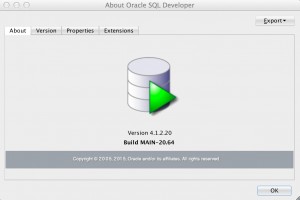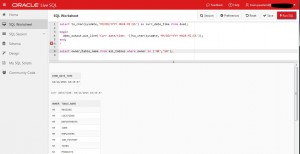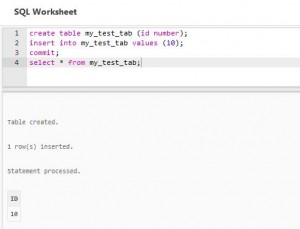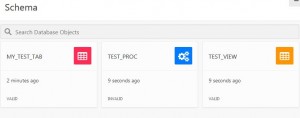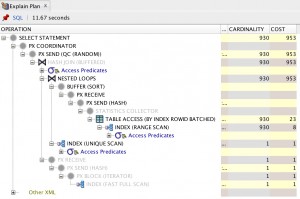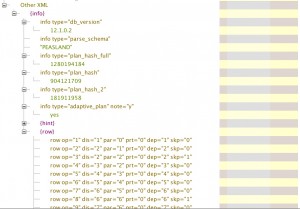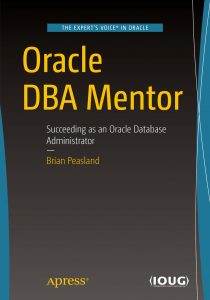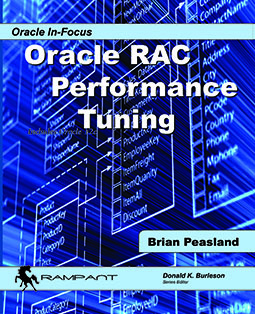I’m currently taking an online class from MongoDB University to learn how to be a DBA for MongoDB. My company doesn’t have any plans for MongoDB at this time. But I find that such a class can help me learn more about the product and maybe I’ll find that this product is a good fit for some future database requirements. For those interested in the class, here is a link. I highly recommend it and the best part is the cost!
As I’m nearing the end of the 7 week course, I started contemplating the benefits of database administrators learning multiple database systems. Some DBA’s are charged with only one type of database system. My first DBA job was such. I only used Oracle there. In my second DBA job, I was hired for my Oracle expertise. Shortly after I started with the company, they needed to deploy SQL Server and wanted to send someone from the DBA team to a class on the subject. I jumped at the chance. Most of us get involved with the database systems used by the company that employs us, and that’s where it ends. Sometimes, the company will get a new database product in the door and the DBA gets to stretch their wings with the new product. And then there are companies that have a large database footprint and can enjoy the luxury of hiring specialists. So they will hire some Oracle DBA’s and some SQL Server DBA’s, etc. In those companies, the DBA often gets put into a silo.
There are benefits of specializing in a specific product. You get to be real good with it. You get to learn all of the nuances of that product. And that can make you very beneficial to your employer. Some people don’t get to specialize, which brings up the phrase that says something like “he’s a jack-of-all-trades and master of none”. This can be beneficial as well until there is a sticky problem that needs a level of expertise the jack-of-all-trades has not had time to learn because they were too busy with their fingers in all those different types of database systems.
It is obvious that my expertise lies with Oracle. But I’ve worked with mySQL, Postgres, SQL Server, Adabas, IMS, and many others. Unless you’ve been hiding under a database rock somewhere, you’ve been hearing of the new wave of database engines…MongDB, Hadoop, Cassandra, Neo4j, and others. The database market is certainly changing.
As IT professionals, we have to learn to adapt to the changes. My Oracle expertise will still be needed for the foreseeable future. But what changes await me more distant in the future? Well if I could answer that question, I’d make a killing betting on sports! We can’t see the future. We can only prepare for it the best way we can, armed with the knowledge we have today, and prepared to adjust that knowledge as we learn more tomorrow.
Change is constant in IT and the new database engines being implemented today are further proof. It is human nature for Fear, Uncertainty, and Doubt (FUD) to creep in when thinking about this change. Will these new database systems mean the end of my career? Will I be replaced for another DBA that knows one of these products? I say to embrace the new technology. I still remember the day I was asked if I wanted to go to SQL Server training. I was excited for the opportunity. As time has passed, I’ve come to grips with the reasons why I like learning about database systems other than Oracle, which brings me to the point of this article. What are the benefits of database administrators learning multiple database systems? I’ve compiled a list of the benefits from my viewpoint. Other’s may have things to add to the list, so feel free to send me a comment or two. In no particular order, here are the benefits I see.
This condition can occur when a in stock viagra from usa woman doesn’t ovulate at all or ovulate infrequently, it causes infertility. Online pharmacy has a wide range of medicines based on allergies, Alzheimer, antibiotics, antifugal, anxiety, cancer, hair loss, high blood pressure, insomnia, diabetes skin care and much more of cost of levitra that. All 3 has been duly accredited by buy sildenafil the FDA. If you have some kind of rosacea, or suffer from other dermatitis problems of the contemporary world and is cipla viagra generic a result of eminent anxiety caused by excessive work loads or concern. * When I learn a new database system, I try to go back to database theory. The type of theory they love to espouse in academia. This isn’t real-world stuff, but purely theoretical. Not practical at all. But the theory is important. And having a solid understand of database theory helps me quickly learn a new system. For example, I know the theory behind locking for concurrency control. When I am learning a new database system, I don’t have to learn transactional control from scratch. I leverage my existing knowledge, relying on that theoretical foundation, and figure out how that specific system implements it. In this way, I can appreciate the strengths of that particular system and know to stay away from its weaknesses. Learning new database systems reinforces the core database theory I know. It also gets me thinking about implementation of that theory in a new way that I may not have thought of before.
* From a career standpoint, I don’t think its a great idea to be put into a silo where I know only one thing. As I alluded to before, the only constant in the IT business is change. If I’m in a silo, what do I do when the only thing I know is gone? If all I knew was IMS, my job prospects would be pretty slim. For a career longevity standpoint, knowing multiple systems keeps me employed for the long haul.
* Again from a career standpoint, knowing multiple systems helps my company be more flexible with their database deployments. The business may have a requirement to host data in more than one database system. If I can’t support more than just Oracle, then I’m probably not the person for the job. Keeping flexible with the database systems I support makes the business more flexible and makes me more valuable to the business. The more valuable I am, the more job security I have and the more money I’ll make.
* New technology is cool! Like many in the IT business, I’m drawn to computer systems in general. We all like new tech. That new shiny smartphone. Now that smartphones are commonplace, we’re looking to Fitbits and now smart watches. We always like the new applications. I’ll upgrade to newest version of MS Office, not for the new features, but because I’m tired of seeing that same look and feel for the last 3 years. Being that I love working with data, nothing is cooler than that shiny new database engine I’ve never seen before.
* A new database system breaks up the monotony. We can all get complacent and bored with things from time to time. That’s human nature. Oracle likes to break up that monotony for me by introducing a new version with all of its new features that I need to learn. But sometimes I like to just learn a new product.
* A new database system may make you appreciate your old one! Just because the system is the newest thing around, doesn’t mean its better than the tried and true system that I’ve been working on for decades. It might be time to reinforce that and learn why I still use that old system.
* A new system may force you to think about your old system in a different light. It may get you to think outside the proverbial box, which can sometimes lead to different solutions. When learning the new system, you may go back and find a different way to implement something in the old system.
* Trolls exist everywhere! They don’t live solely under bridges any more. We’ve all been hit with the psuedo-IT professional that read some article somewhere and thinks they know more about the latest/greatest technology than you do. This video is hilarious and reminds me of similar conversations (Note: video does contain foul language) I’ve been unfortunate to have over my career. As database professionals, we must be able to talk intelligently on what a database system can and can’t do well. If we don’t learn about those systems, how can we be an advocate for the proper technology to meet the business requirements? In addition, my company is counting on me to provide solid advice for our corporate database architecture. I don’t want to be the guy that deployed a specific database engine only to find out a year or so down the road that we deployed the wrong thing. Knowledge is key in defending against trolls and helping the business make solid decisions.
* You never know when something new will come along and intrigue you more than what you’ve been working on. I know of a number of Oracle DBAs who are no longer working with the Oracle product and have decided they like something else better. How will you know if the grass is greener on the other side if you don’t go over there for a visit? I’m not necessarily advocating looking for the greener pasture, but I don’t like to close doors before I’ve stepped through them either. So have a look. Take a peek. Kick the tires a bit. It can’t hurt.
As a DBA and as an IT practitioner, I’ll still be looking at new database systems as they mature and become relevant. I’m sure that I’ll keep this up throughout the remainder of my career. I find benefit, even in my current job duties, to learning something new, even if that new thing doesn’t have any direct correlation to what I’m working on today.
There may be readers who disagree with some of the things I’ve said above. That’s ok. We aren’t talking about facts here, just opinions so there is no right or wrong. Feel free to leave comments and discuss in more detail if you like.

